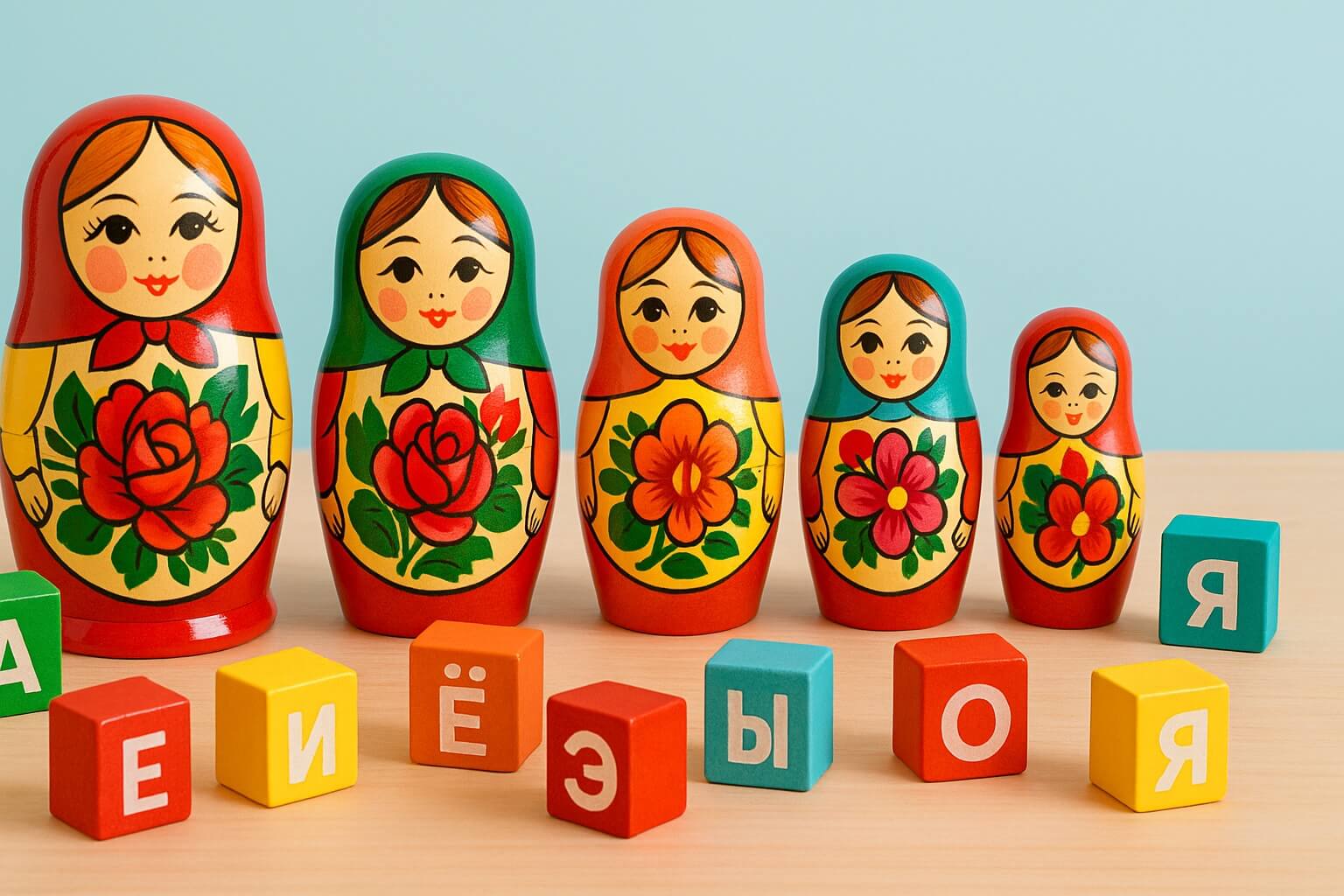
Mastering the Russian alphabet might seem intimidating at first, but it’s more accessible than you think. With just 33 letters, the Cyrillic alphabet unlocks a rich language spoken by over 250 million people worldwide.
The Basics: How Many Letters Are There?
The Russian alphabet consists of 33 letters:
- 10 vowels: А, Е, Ё, И, О, У, Ы, Э, Ю, Я
- 21 consonants: Б, В, Г, Д, Ж, З, Й, К, Л, М, Н, П, Р, С, Т, Ф, Х, Ц, Ч, Ш, Щ
- 2 special signs: Ь (soft sign), Ъ (hard sign)
Each letter has uppercase and lowercase forms, similar to the English alphabet.
Pronunciation Tips: Easy Ways to Get Started
- Similar Letters: Some Russian letters sound identical to their English counterparts (А = A, К = K, М = M, Т = T).
- Misleading Letters: Watch out! Some letters look familiar but are pronounced differently (Р = R, Н = N, В = V).
Vowels: Understanding Their Sounds
Russian vowels significantly influence pronunciation:
- Hard vowels: А, О, У, Э, Ы produce a clear, direct sound.
- Soft vowels: Е, Ё, И, Ю, Я soften the preceding consonant.
Consonants: Mastering the Sounds
Most consonants sound similar to English, but a few require extra practice:
- Ж (Zh): Like “s” in “measure.”
- Ч (Ch): Like “ch” in “chair.”
- Ш (Sh): Like “sh” in “shoe.”
- Щ (Shch): A softer, extended “sh” sound.
Special Signs: Soft and Hard
- Soft Sign (Ь): Softens the preceding consonant.
- Hard Sign (Ъ): Less common, separates vowels and consonants to clarify pronunciation.
Tips for Memorizing the Alphabet
- Flashcards: Great for visual learners.
- Writing practice: Regularly write letters and simple words.
- Listening exercises: Engage with Russian songs, videos, and podcasts.
Common Mistakes and How to Avoid Them
- Confusing visually similar letters (e.g., Б (B) and В (V)).
- Forgetting the soft and hard signs.
Regular practice is key!
Why Learn the Russian Alphabet?
Understanding the alphabet opens doors to a wonderful culture, literature, and even career opportunities. Learning Russian also enhances cognitive skills significantly.
Conclusion
With patience, consistent practice, and the right resources, you’ll master the Russian alphabet faster than you think. Start now and unlock a language rich in history and culture!



